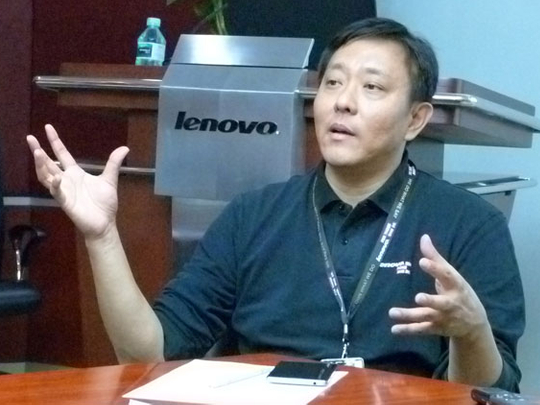
Beijing: Lenovo will focus on its phones in emerging markets and reintroduce Motorola as a high-end brand in some of the emerging and mature markets, according to a top company executive.
“Lenovo will continue with dual brands in some markets as Motorola is popular in the US and Europe while Lenovo is popular in the emerging markets,” Liu Jun, executive vice-president of mobility business group at Lenovo, told Gulf News.
Google acquired Motorola Mobility in May 2012 for $12.5 billion. Lenovo later acquired Motorola from Google in January for $2.91 billion in a deal that’s still pending.
He said Lenovo is awaiting approvals from US, China and EU authorities and is expected to be closed in the next three to four months.
The company’s worldwide smartphone shipments grew 63.3 per cent in the first quarter of this year to 12.9 million units, according to a research firm IDC. Lenovo is ranked fourth after Samsung, Apple and Huawei. Lenovo is not present in North America, Western Europe and some parts of the Middle East and Africa. The company’s sole strength lies in emerging markets amid started selling its smartphones in 2010.
By combining Motorola’s shipments, Lenovo will become the third largest player.
The company sold 50 million smartphones and 55 million notebooks and desktops last year and expects to sell 80 million smartphones and 20 million tablets this year.
To become a global player, he said Lenovo needs the scale and that was our goal from 2010. The biggest advantage of the Motorola acquisition is the US firm’s R&D staff and the patents.
The proposed agreement will give us access to a “rich portfolio of patents, licensing and other intellectual property, along with strengthening our relationship with Google through this acquisition and on-going partnership.”
Lenovo will acquire more than 2,000 patent assets, brand and trademarks and will have access to more than 20,000 royalty-free patents.
Jun said that Lenovo has no plan to produce its own chipset and will focus on with its strategic partners — Mediatek, Intel and Qualcomm.
Samsung and Huawei have produced their own chipsets for their smartphones.
Despite Android holding the largest market share in the operating system, he said Lenovo will launch its Windows Phone later in the year.
Last year, the company generated smartphone sales of 10 per cent outside China and expects this year to generate around 40 per cent outside China as the country has become more mature and faces stiff competition from branded and domestic manufacturers.
The world’s largest PC manufacturer is facing stiff competition in the Chinese smartphone market and warns of slower growth due to branded and domestic manufacturers.
Lenovo is the second largest smartphone manufacturer in China after Samsung with 13 per cent market share.










